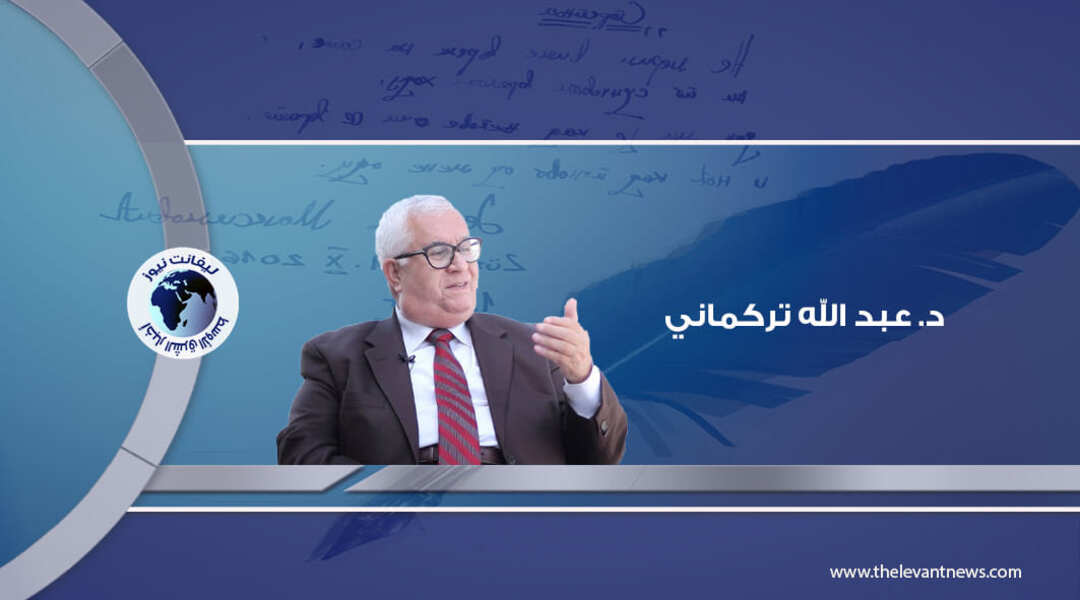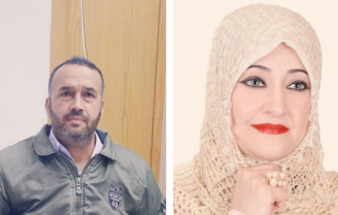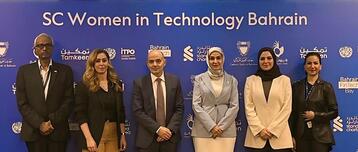-
Determinants of Transitional Justice After the Fall of the Al-Assad Authority (1 - 4)

Transitional justice is considered an important option following changes in authoritarian states, as is the case in Syria after the fall of the Al-Assad authority, due to the intensity of the armed conflict and the suffering inflicted on Syrians as a result of the barbaric actions of the combatants, especially the forces and militia of the Syrian regime and its Iranian and Russian allies. This necessitates the application of possible transitional justice mechanisms to achieve comprehensive national reconciliation, punish criminals, and compensate victims. Overcoming the phase of tyranny and restoring civil peace and social unity requires "preparing souls by redressing grievances, restoring rights to their owners, compensating the affected, revealing the fate of the missing, uncovering the truths of what happened, determining responsibilities, and holding accountable those who committed violations and crimes" (1).
Most countries that sought national reconciliation after revolutions gained security, justice, and development. Those that slipped into violence, extremism, and extermination paid heavy prices and remained shackled by fear, terrorism, and backwardness. However, in most cases, national reconciliation was associated with transitional rather than retributive justice.
In Syria, there is no doubt that the process of democratic transition is fraught with numerous difficulties: the complex structure of Syria within its regional environment and the sectarian and ethnic diversity within society. Although there are general international principles for transitional justice, forms of this justice vary according to Syria's specificities and the nature of the conflicts and problems that have existed for half a century, with the aim of reaching the process of building a new political system that accommodates all political parties and social components.
Many societies have gone through what Syria has experienced, especially in Africa, Latin America, Eastern Europe, and Arab countries, yet they managed to open a new page based on truth, accountability, and justice, and then reconciliation, through transitional justice, as it serves as "a mechanism to overcome the constraints of the past" and is crucial in "paving the way toward democracy at a lower cost," and its ability to "fortify societies against grave human rights violations and the harsh experiences of tyranny" (2). The return to the past seeks "to bring forth its pains and tragedies before public opinion with honesty and transparency, in order to strive to overcome them in the future" (3).
The success of the democratic transition process and the establishment of a state of law and order that achieves peace and coexistence among all social components, and helps to overcome vengeance, exclusion, and hostility, is difficult without the option of achieving comprehensive national reconciliation, under the banner of "restorative justice." This option, based on political pragmatism, was predicated on abandoning punitive justice or deferring it for those accused from the authoritarian regime, compensating it with alternative measures, as seen in the Moroccan model, which involved "knowing the truth of the crimes, documenting them, presenting them to the public, offering various forms of material and symbolic reparations to the victims, preserving their painful memories, committing to not repeating violations, and entrenching democracy" (4).
Successful experiences of democratic transition in Europe, Latin America, and South Africa, along with the experiences of Morocco and Tunisia, as well as insights from annual reports of the International Center for Transitional Justice (5), will assist us in approaching the foundations of transitional justice in Syria after the change.
**Major Human Rights Violations During the Years of the Syrian Revolution**
Human rights violations in Syria are numerous and varied, extending over a long period of more than five decades. The most notable among them are the war crimes and crimes against humanity committed by the Syrian regime’s forces and their militia during the years of the Syrian revolution (2011 – 2024). This makes the issue of exploring the best ways to deal with the legacy of the past not just necessary but urgent, especially since it has become a topic for discussion today, whether by the victims and their families, civil society components, or political parties and forces.
The Syrian regime resorted to excessive force to suppress the peaceful Syrian revolution, and the army and security forces committed severe human rights violations that reached the level of crimes against humanity. The situation worsened due to increased violence and its escalation into an armed conflict, transforming since February 2012 into a proxy war for conflicting local, regional, and international powers.
There is hardly a household in Syria that has not suffered material and moral harm in one way or another, and there is hardly a family in Syria, whether loyal to the regime or opposed to it, that has not experienced grief; some have lost a son or daughter or a father or mother, others have had a family member injured or disabled, and many families have had a member arrested or kidnapped, with no knowledge of their fate. Many families are still searching for the bodies of their loved ones who were killed in battles or tortured in detention centers
Dr. Abdullah Turkmani
You May Also Like
Popular Posts
Caricature
BENEFIT AGM approves 10%...
- March 27, 2025
BENEFIT, the Kingdom’s innovator and leading company in Fintech and electronic financial transactions service, held its Annual General Meeting (AGM) at the company’s headquarters in the Seef District.
During the meeting, shareholders approved all items listed on the agenda, including the ratification of the minutes of the previous AGM held on 26 March 2024. The session reviewed and approved the Board’s Annual Report on the company’s activities and financial performance for the fiscal year ended 31 December 2024, and the shareholders expressed their satisfaction with the company’s operational and financial results during the reporting period.
The meeting also reviewed the Independent External Auditor’s Report on the company’s consolidated financial statements for the year ended 31 December 2024. Subsequently, the shareholders approved the audited financial statements for the fiscal year. Based on the Board’s recommendation, the shareholders approved the distribution of a cash dividend equivalent to 10% of the paid-up share capital.
Furthermore, the shareholders endorsed the allocation of a total amount of BD 172,500 as remuneration to the members of the Board for the year ended 31 December 2024, subject to prior clearance by related authorities.
The extension of the current composition of the Board was approved, which includes ten members and one CBB observer, for a further six-month term, expiring in September 2025, pending no objection from the CBB.
The meeting reviewed and approved the Corporate Governance Report for 2024, which affirmed the company’s full compliance with the corporate governance directives issued by the CBB and other applicable regulatory frameworks. The AGM absolved the Board Members of liability for any of their actions during the year ending on 31st December 2024, in accordance with the Commercial Companies Law.
In alignment with regulatory requirements, the session approved the reappointment of Ernst & Young (EY) as the company’s External Auditors for the fiscal year 2025, covering both the parent company and its subsidiaries—Sinnad and Bahrain FinTech Bay. The Board was authorised to determine the external auditors’ professional fees, subject to approval from the CBB, and the meeting concluded with a discussion of any additional issues as per Article (207) of the Commercial Companies Law.
Speaking on the company’s performance, Mr. Mohamed Al Bastaki, Chairman BENEFIT , stated: “In terms of the financial results for 2024, I am pleased to say that the year gone by has also been proved to be a success in delivering tangible results. Growth rate for 2024 was 19 per cent. Revenue for the year was BD 17 M (US$ 45.3 Million) and net profit was 2 Million ($ 5.3 Million).
Mr. Al Bastaki also announced that the Board had formally adopted a new three-year strategic roadmap to commence in 2025. The strategy encompasses a phased international expansion, optimisation of internal operations, enhanced revenue diversification, long-term sustainability initiatives, and the advancement of innovation and digital transformation initiatives across all service lines.
“I extend my sincere appreciation to the CBB for its continued support of BENEFIT and its pivotal role in fostering a stable and progressive regulatory environment for the Kingdom’s banking and financial sector—an environment that has significantly reinforced Bahrain’s standing as a leading financial hub in the region,” said Mr. Al Bastaki. “I would also like to thank our partner banks and valued customers for their trust, and our shareholders for their ongoing encouragement. The achievements of 2024 set a strong precedent, and I am confident they will serve as a foundation for yet another successful and impactful year ahead.”
Chief Executive of BENEFIT; Mr. Abdulwahed AlJanahi commented, “The year 2024 represented another pivotal chapter in BENEFIT ’s evolution. We achieved substantial progress in advancing our digital strategy across multiple sectors, while reinforcing our long-term commitment to the development of Bahrain’s financial services and payments landscape. Throughout the year, we remained firmly aligned with our objective of delivering measurable value to our shareholders, strategic partners, and customers. At the same time, we continued to play an active role in enabling Bahrain’s digital economy by introducing innovative solutions and service enhancements that directly address market needs and future opportunities.”
Mr. AlJanahi affirmed that BENEFIT has successfully developed a robust and well-integrated payment network that connects individuals and businesses across Bahrain, accelerating the adoption of emerging technologies in the banking and financial services sector and reinforcing Bahrain’s position as a growing fintech hub, and added, “Our achievements of the past year reflect a long-term vision to establish a resilient electronic payment infrastructure that supports the Kingdom’s digital economy. Key developments in 2024 included the implementation of central authentication for open banking via BENEFIT Pay”
Mr. AlJanahi concluded by thanking the Board for its strategic direction, the company’s staff for their continued dedication, and the Central Bank of Bahrain, member banks, and shareholders for their valuable partnership and confidence in the company’s long-term vision.
opinion
Report
ads
Newsletter
Subscribe to our mailing list to get the new updates!






















